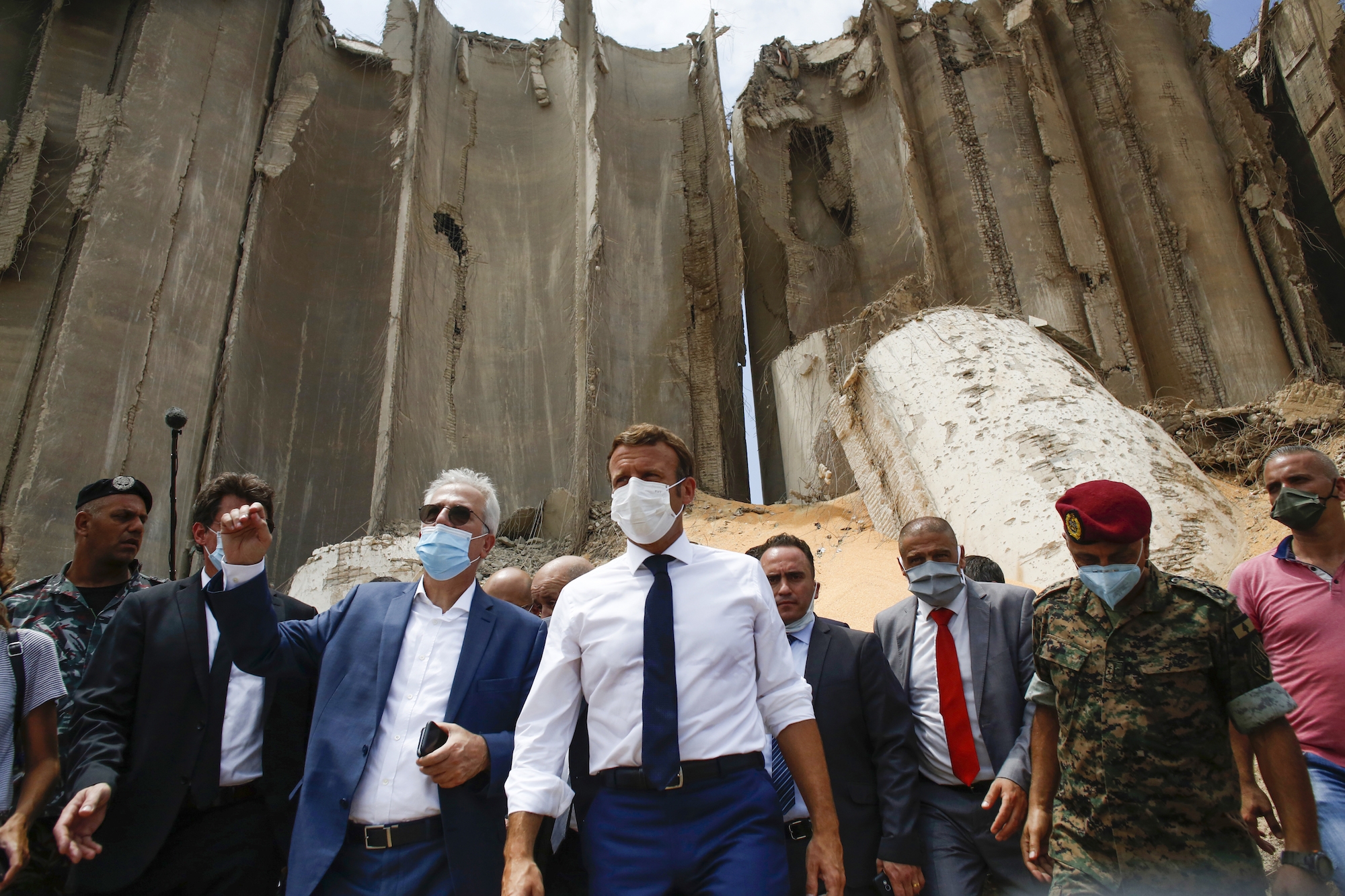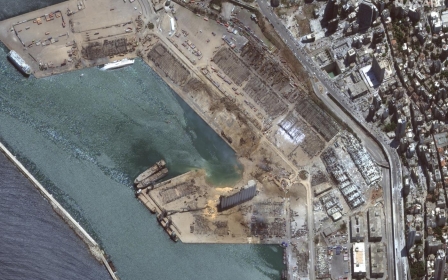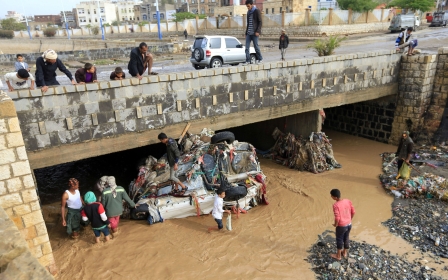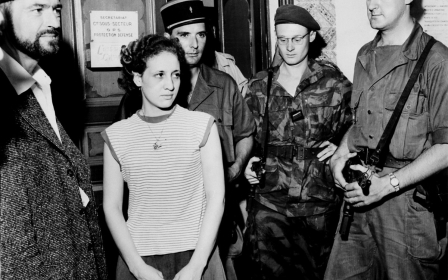Arabic press review: Furore over Lebanese petition calling for French rule

Beirut blast sparks controversial call for French rule
More than 50,000 people in Lebanon have signed a petition to put the country under French control, local media reported, sparking controversy.
The unprecedented call for the return of the French mandate - which was in force in Lebanon at the beginning of the last century - is a big departure from the country’s longstanding position that French presence was a “direct occupation” of Lebanon.
The petition was launched on Thursday as French President Emmanuel Macron made a surprise snap visit to Lebanon following Tuesday’s deadly explosion at Beirut’s port, which devastated much of the country's capital.
During the first visit by a foreign head of state since the blast, some citizens gathered around the French leader chanting "Revolution! Revolution! Please help us.”
The petition, which calls for Lebanon to be placed under French control for the next 10 years, has sparked division and controversy among Lebanese on social media.
Some have denounced the petition as “treason”, while others have claimed that Lebanon has “never been an independent country" and therefore the return of French occupation could be a "solution" to the country's prevailing distrust in its political elite, London-based newspaper Al-Quds Al-Arabi reported.
France carved Lebanon out of Syria in 1920 and ruled it directly until 1943.
Algeria investigates newspapers for corruption
Leading newspapers in Algeria are being investigated for suspected corruption in relations to the receipt and misuse of millions of advertising dollars, Algerian-based newspaper El Khabar reported.
According to the director of Algeria's National Publishing and Advertising Agency, Larbi Ounoughi, financial corruption in advertising distribution operations in the country amounted to 150 billion Algerian dinars ($800m), including $200m that had been illegally distributed to newspapers over the past four years.
“Investigations are still underway regarding many cases which could bring down several officials, including those who were at the helm in the sector's management and others who benefitted without merit from newspapers that do not exceed [a circulation of] 2,000 copies,” Ounoughi told the newspaper.
He said the probe would look at the advertising contracts Algerian newspapers had signed during the reign of former president Abdelaziz Bouteflika. He named a long list of publications under scrutiny which included prominent dailies such as En-Nahar and al-Shorouk, as well as other lesser-known titles.
The investigation would also extend to foreign newspapers, media and magazines which had benefitted from questionable financial incomes, said the Algerian official.
These foreign media organisations had received significant amounts of money and funds, dedicated to advertising campaigns that were seemingly aimed at improving Algeria's reputation, but were in reality intended to improve the image of former leaders and transfer foreign currency abroad, Ounoughi said.
Warming Emirati-Iranian relations could signal changes in Yemen
Rapprochement between Iran and the United Arab Emirates is becoming increasing apparent as the two countries make deals and collaborations despite their opposing positions in the Yemen war, Arabi 21 website reported.
According to Adnan Hashem, a Yemeni writer and researcher, the economic alliance between Tehran and Abu Dhabi is at an all-time high, as the UAE does not boycott Iran as Saudi Arabia and Bahrain do.
“Iranian businessmen own capital of nearly $300bn in the UAE, in addition there’s an Iranian community of 800,000 people in the Emirates," Hashem told Arabi 21, adding that he expected Iran-Emirati relations to continue uninterrupted, at least in the near future.
"Negotiations and meetings between the two sides have not been halted in order to coordinate foreign policies and avoid a possible war in the Strait of Hormuz,” he said.
The UAE is a leading partner in a Saudi-led coalition that intervened in Yemen in March 2015 to restore Abd Rabbuh Mansour Hadi's government after it was toppled in late 2014 by the Houthis, who are aligned with Iran.
In May 2019, two Saudi oil tankers, a Norwegian tanker and an Emirati vessel were damaged in attacks near the Emirati port of Fujairah, a major oil terminal which lies on the Gulf of Oman, near the Straits of Hormuz.
While the United States and Saudi Arabia quickly placed the blame on Iran, UAE Foreign Minister Abdullah bin Zayed Al Nahyan said at the time that no country could be held responsible for the attacks on oil tankers in the Gulf without “clear and convincing evidence”.
Abdul Nasser al-Mawadda, an Yemeni writer and political analyst, noted a “major change” in UAE’s policy towards Iran following the 2019 attacks.
“The UAE has effectively withdrawn from the war against the Houthis through real or tacit agreements with Iran,” he said.
*Arabic press review is a digest of reports that are not independently verified as accurate by Middle East Eye
Middle East Eye propose une couverture et une analyse indépendantes et incomparables du Moyen-Orient, de l’Afrique du Nord et d’autres régions du monde. Pour en savoir plus sur la reprise de ce contenu et les frais qui s’appliquent, veuillez remplir ce formulaire [en anglais]. Pour en savoir plus sur MEE, cliquez ici [en anglais].




